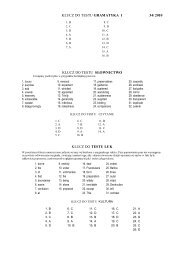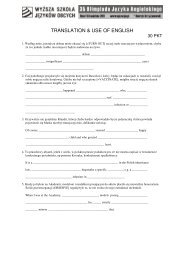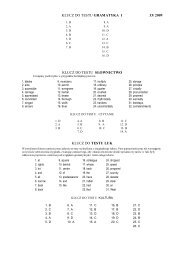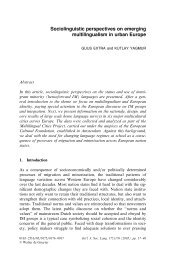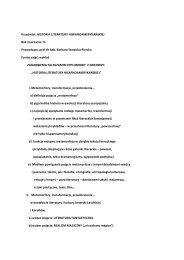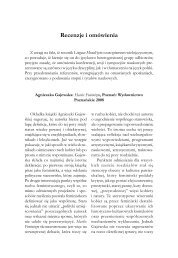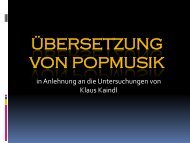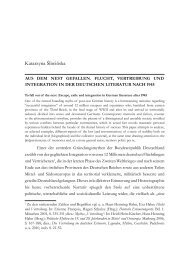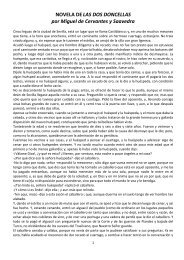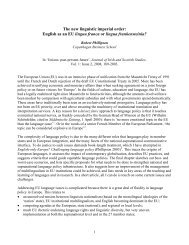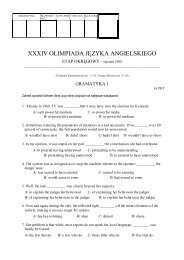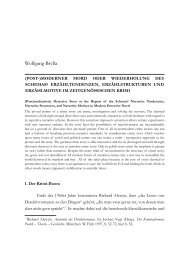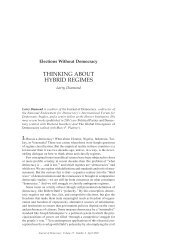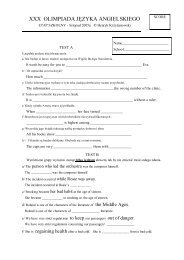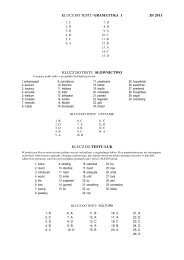2011 Descriptive Grammar of English Marcin CinciaÅa - Serwis ...
2011 Descriptive Grammar of English Marcin CinciaÅa - Serwis ...
2011 Descriptive Grammar of English Marcin CinciaÅa - Serwis ...
Create successful ePaper yourself
Turn your PDF publications into a flip-book with our unique Google optimized e-Paper software.
MORPHOLOGY<br />
1. Words and morphemes<br />
(a) morphemes – the minimal meaningful units <strong>of</strong> language,<br />
(b) words – minimal free forms.<br />
2. Morphology<br />
2. What does morphology deal with<br />
3. Enumerate the major lexical categories.<br />
4. What is the difference between a bound and a free morpheme<br />
5. Exemplify and name types <strong>of</strong> affixes.<br />
6. What is the difference between derivation and inflection Name<br />
three criteria distinguishing derivational affixes from the<br />
inflectional ones.<br />
7. What are nouns morphologically marked for<br />
8. What are verbs morphologically marked for<br />
(a) simple vs complex words,<br />
(b) closed vs open classes,<br />
(c) morphemes and allomorphs,<br />
(d) free vs bound morphemes,<br />
(e) derivation through affixation: prefix – stem – suffix<br />
(f) zero derivation (conversion),<br />
(g) ablaut,<br />
(h) stress shift.<br />
3. Word formation<br />
(a) derivation and derivational rules,<br />
(b) compounding,<br />
(c) clipping, blending and backformation.<br />
4. Inflection<br />
(a) inflection vs derivation,<br />
(b) nominal inflection,<br />
(c) verbal inflection (Wardhaugh 1995: 51-60, 64).<br />
Questions:<br />
1. What does it mean that words are arbitrary



